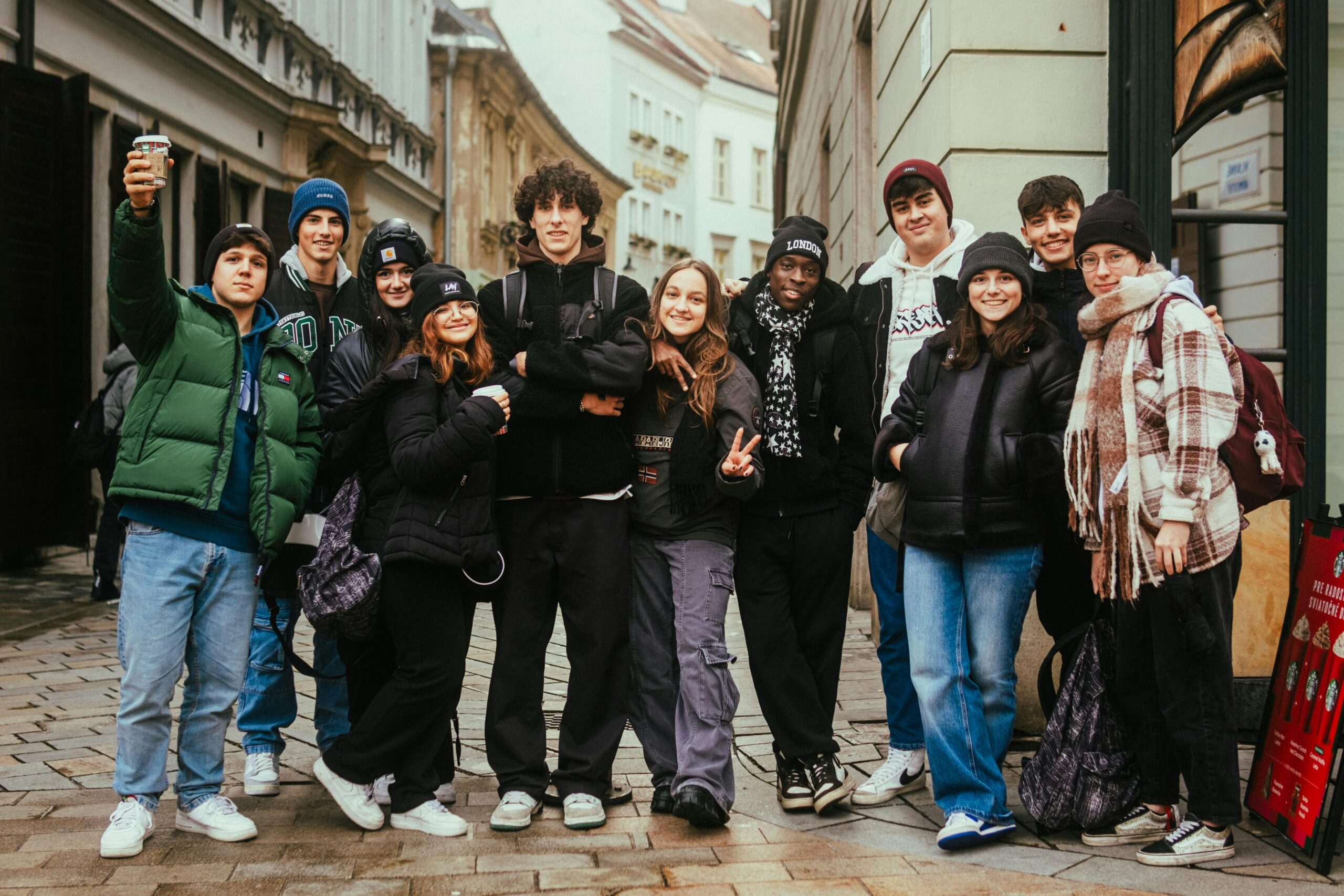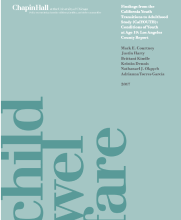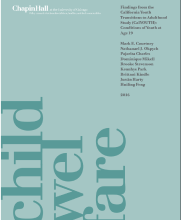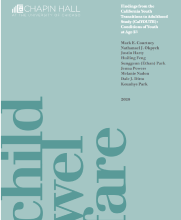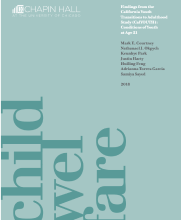The California Youth Transitions to Adulthood Study
 The California Youth Transitions to Adulthood Study (CalYOUTH), the most comprehensive longitudinal study of TAY in foster care, evaluated implementation of California’s foster care extension. The CalYOUTH study interviewed TAY in foster care at ages 17, 19, 21, and 23, surveyed caseworkers, and analyzed government administrative records on youths’ maltreatment and foster care histories, education, earnings, and public aid. Baseline interviews were conducted in 2013 with a stratified statewide sample of 727 youth aged 16.75-17.75 with at least six months in care (95% response rate). Follow-up interviews were conducted with 84% (n=611) in 2015, 85% (n=616) in 2017, and 86% (n=622) in 2019-2020 of baseline sample. The CalYOUTH study concluded data collection in 2022, but ongoing data analysis continues to yield valuable insights on the experiences and outcomes of TAY in foster care. These findings inform policy and practice improvements to better support this vulnerable population.
The California Youth Transitions to Adulthood Study (CalYOUTH), the most comprehensive longitudinal study of TAY in foster care, evaluated implementation of California’s foster care extension. The CalYOUTH study interviewed TAY in foster care at ages 17, 19, 21, and 23, surveyed caseworkers, and analyzed government administrative records on youths’ maltreatment and foster care histories, education, earnings, and public aid. Baseline interviews were conducted in 2013 with a stratified statewide sample of 727 youth aged 16.75-17.75 with at least six months in care (95% response rate). Follow-up interviews were conducted with 84% (n=611) in 2015, 85% (n=616) in 2017, and 86% (n=622) in 2019-2020 of baseline sample. The CalYOUTH study concluded data collection in 2022, but ongoing data analysis continues to yield valuable insights on the experiences and outcomes of TAY in foster care. These findings inform policy and practice improvements to better support this vulnerable population.
Building on these achievements while housed at the University of Chicago, the CalYOUTH study has transitioned to the Transition-Age Youth Research and Evaluation Hub (TAY-Hub) within the California Child Welfare Indicators Project at UC Berkeley, bolstering California’s capacity to generate and analyze data on TAY in care.
LONGITUDINAL STUDIES
CalYOUTH: Proving Extended Foster Care Works for Young Adults in Transition from Foster Care
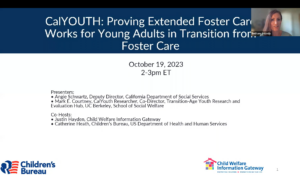 Angie Schwartz, deputy director of the California Department of Social Services, and Mark E. Courtney, TAY-Hub co-director at the UC Berkeley School of Social Welfare, were invited by the Children’s Bureau at the Administration of Children and Families to present a webinar on October 19, 2023 titled “CalYOUTH: Proving Extended Foster Care Works for Young Adults in Transition from Foster Care.”
Angie Schwartz, deputy director of the California Department of Social Services, and Mark E. Courtney, TAY-Hub co-director at the UC Berkeley School of Social Welfare, were invited by the Children’s Bureau at the Administration of Children and Families to present a webinar on October 19, 2023 titled “CalYOUTH: Proving Extended Foster Care Works for Young Adults in Transition from Foster Care.”
The purpose of the webinar was to share lessons about how the state of California has designed and implemented an extended foster care program in a way that has improved the lives of young people in transition from foster care. For more information, click here.


